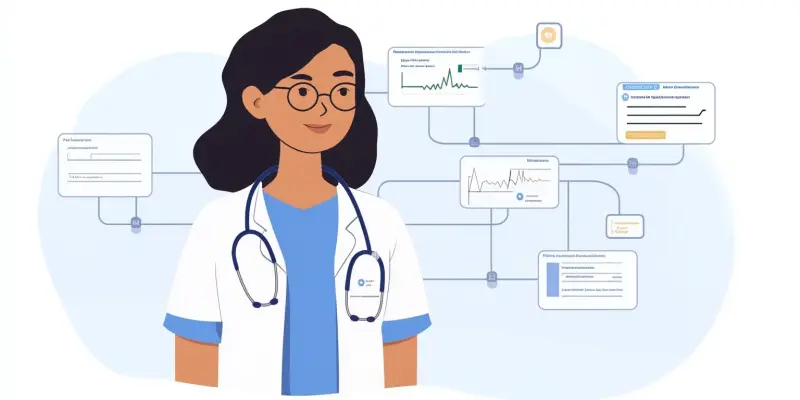Robotic process automation (RPA) has emerged as a significant tool designed to automate repetitive and routine tasks using software robots within a system’s server, making a considerable impact on the healthcare industry’s revenue cycle and administrative processes. This technology is now being utilized to assist the nursing workforce, an initiative aimed at streamlining workflows to enhance productivity and relieve nurses from time-consuming, below-competency tasks. The increasing reliance on RPA in this domain has become essential, given the substantial documentation burden that detracts from patient care and drives nurses towards roles offering better work-life balance and flexibility.
By leveraging RPA, the healthcare sector can alleviate the strain some administrative duties place on nurses, allowing them to dedicate more time to hands-on patient care, empathetic communication, and patient advocacy. This shift not only reduces the potential for burnout but also boosts job satisfaction among nurses by allowing them to engage more deeply in fulfilling aspects of their profession. In spite of its advantages, it is crucial to acknowledge that RPA is not a replacement for bedside nurses, as it is designed to handle only straightforward tasks that do not require human judgment or logic. However, by delegating these tasks to RPA, hospitals can ensure the sustainability of their acute care workforce.
Furthermore, the implementation of RPA in nursing functions can lead to significant improvements in overall healthcare service delivery. For instance, by automating processes such as data entry, appointment scheduling, and medication administration records, nurses can focus more on providing high-quality patient care. This operational efficiency not only enhances patient satisfaction but also contributes to better healthcare outcomes. The advent of RPA in the nursing sector represents a forward-thinking approach to meeting the growing demands on healthcare systems and supporting the critical role of nurses in patient care delivery.
The next steps involve continuing to refine and integrate RPA technologies into nursing workflows while ensuring continuous training and support for healthcare professionals. By doing so, we can create an environment where technology and human expertise work in harmony to deliver exceptional patient care, ultimately driving the future of healthcare towards more sustainable and effective practices.

